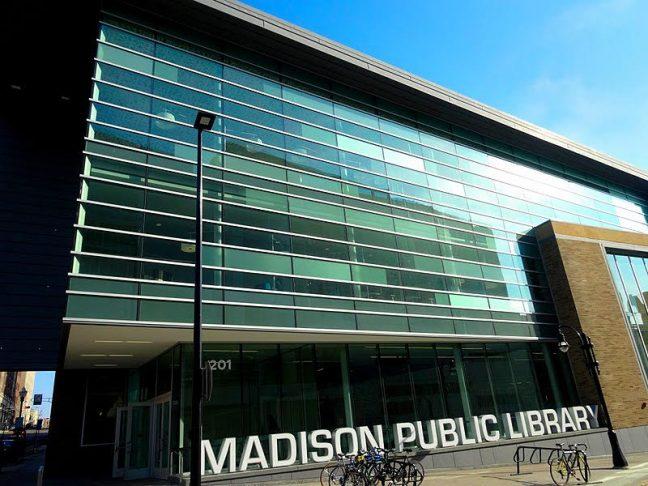For years, the Madison Public Library System’s mission has been to provide equitable access to valuable community services, but with the COVID-19 pandemic leading to a 2.1% cut in their operating budget, staff and city officials have had to find new ways to provide services under a restricted budget.
The Madison Public Library will experience a handful of changes, effective Jan. 19, due to this 2.1% cut in the 2021 Operating Budget.
District 2 Supervisor’s budget amendments are monumental steps to end homelessness in Dane County
According to Digital Services and Marketing Manager, Tana Elias, the budget proposals prioritized equitable internet and computer access for all community members.
“The new budget proposed that we move Sunday hours at the Pinney and Sequoya branches to smaller libraries for equity purposes so we are serving people who are less likely to have computers at home or other resources available,” Elias said.
According to the City of Madison website, approximately 12% of Madison residents do not have internet access at home, and these households consist disproportionately of people of color.
Library Director at the Madison Public Library Gregory Mickells said this new lack of staff at the libraries hindered their ability to support the city’s homeless population.
“COVID conditions do not allow us to help shelter people experiencing homelessness during the day since we lack appropriate space and staffing capacity,” Mickells said.
According to the City of Madison website, Madison ranked highly for its ability to develop online services to improve interactions between community members and the government during the pandemic.
Governor Tony Evers signed Executive Order #80 in July 2020 to create the Governor’s Task Force on Broadband Access, expanding broadband access to all residences, businesses, and institutions in the state of Wisconsin, according to the Public Service Commission website.
Mickells said though this is a step in the right direction, the Madison libraries still aim to improve internet access for the whole community.
“We are looking for more ways to make materials available to families experiencing homelessness, and if a library has secured space available to provide broadband access to families experiencing homelessness we will do so to assist with their virtual school needs,” Mickells said.
The Madison Public Library Website offers resources for the homeless population including food assistance, medical care and links to housing assistance through organizations such as The Beacon, a homeless day resource center.
According to The Beacon’s website, they are a public-private partnership working to provide community solutions to help men, women and children experiencing homelessness in Dane County.
Lead Guest Service Specialist at The Beacon Joel Girard said they have made resources for healthcare, job services and housing assistance that used to be in-person accessible over Zoom for Beacon guests, leading to a higher demand for computers.
But Girard said some of the homeless population still prefer the library, specifically the central branch, over The Beacon because of its accessibility and usefulness.
“A lot of our guests are not comfortable in large groups so they use the library to warm up, meet people, relax and use their emails,” Girard said. “Sometimes disability problems make it difficult to walk to the Beacon but there are buses that lead to the library because it is downtown.”
Elias said the library also decided to go fine-free this year.
The elimination of fines in the 2021 Executive Budget will result in a revenue reduction of $226,300, but a fund balance to partially offset this reduction brings in $250,000.
“We knew in the short term we weren’t going to get that revenue back in 2020 or 2021 because fewer people are using libraries and it’s harder to return books right now,” Elias said. “We were able to make some reductions and still keep it fine-free, which was very important to everyone on the board.”
According to the 2021 Executive Operating Message from Mayor Satya Rhodes-Conway’s office, they also eliminated these fees to make access to the library system more equitable.
Mayor Satya Rhodes-Conway’s plan prioritized a no-layoff budget for businesses in Madison, though some services, such as Parking Utilities, had to lay off workers.
The budget eliminated a vacant librarian position at the Ashman branch and a vacant library assistant position at the Lakeview branch, saving a total of $127,400, according to the library’s budget.
Overdue: As the city expands affordable housing, barriers for those in need persist
According to the City of Madison website, the library will reduce their centralized phone reference and Financial Resources Hotline service hours to 10 a.m. to 6 p.m. on weekdays and 12 p.m. to 5 p.m. on Saturdays. These services offer library information and financial help to the public.
The Monroe Street branch will also only offer three days of service per week from 10 a.m. to 6 p.m. on Mondays, Wednesdays and Fridays.
Current services offered by the Madison Public Libraries include public computer access, curbside pickup, returns, reference assistance and online collections, according to the Madison Library website.












